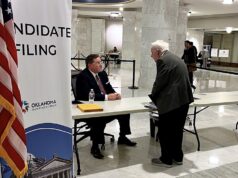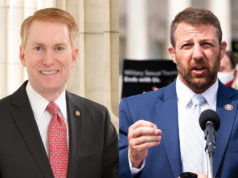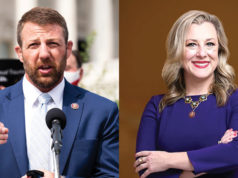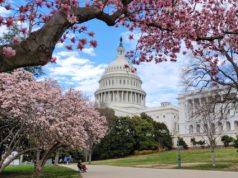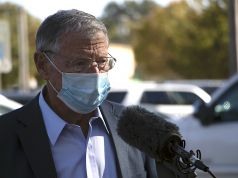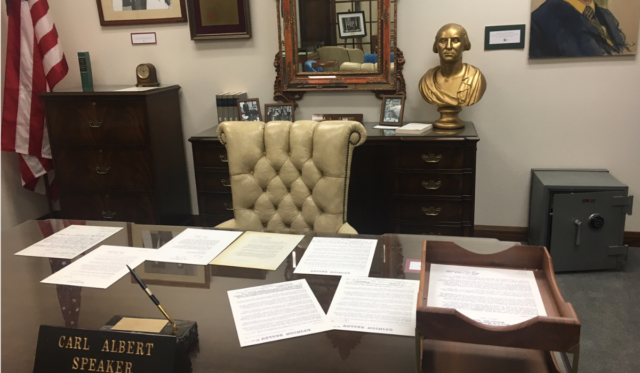
On the second floor of Monnett Hall at the University of Oklahoma sits a reproduction of former U.S. Speaker of the House Carl Albert’s old office. Down the hall one can find photos and documents from the largest political and congressional collection Oklahoma has to offer. Boxes upon boxes of correspondence and legal papers sit behind a locked door nearby. The large room filled with alphabetized collections is only part of the archives owned by the Carl Albert Center — a 3,000-square-foot offsite warehouse contains the rest — and the center is working to make all of its documents digitally searchable.
“We have everything on every subject,” said the center’s senior archivist, J.A. Pryse. “You want baseball? We have it. You want allotment? We have it. You want education, immigration — you know, anything the kids are interested in — we have it.”
Carl Albert, the center’s namesake, was a Rhodes Scholar and graduated from OU in 1931. He served Oklahoma’s 3rd Congressional District in the U.S. House of Representatives as a Democrat from 1947 to 1977, and he was Speaker of the House from 1971 to 1977.
In addition to Carl Albert’s personal items, the archive also houses the papers of 60 other former members of Congress and 25 political figures.
‘The mission of the archives’: a move to digital
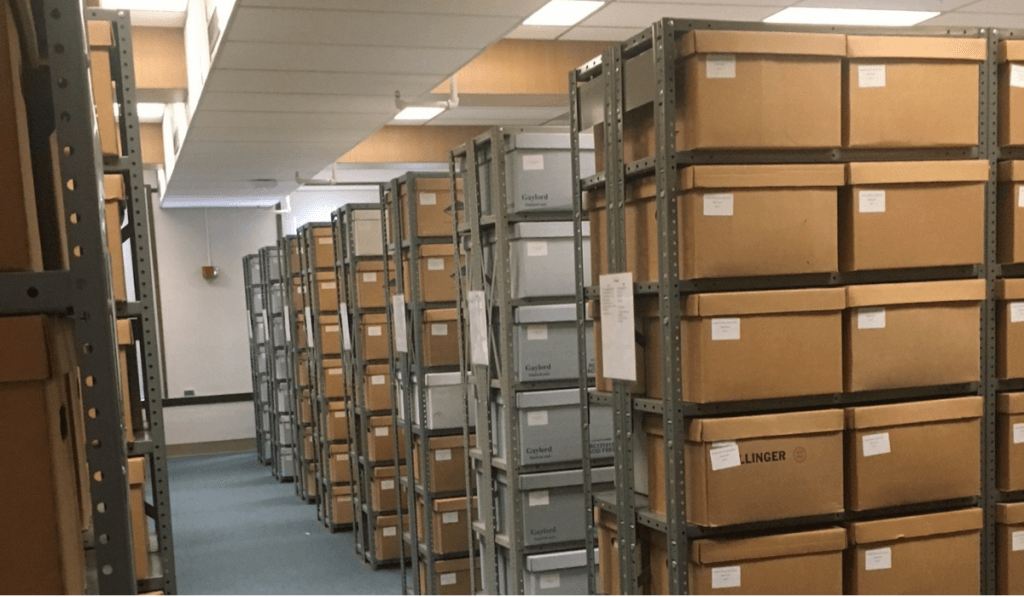
The Carl Albert Center is digitizing its archives through a partnership with students in a Pioneer Library System class, most of whom are retired locals interested in learning about digital archiving and digital preservation.
“The mission of the archives is to digitize as much as we can, properly, and push it out to the public,” Pryse said.
Students who volunteer work remotely from home to transcribe documents written in cursive and make them searchable online. Volunteers significantly speed up the transcription process, Pryse said.
‘Two parts’ to the Carl Albert Center
Founded in 1979, the Carl Albert Center is also home to undergraduate, graduate, civic engagement and women’s leadership programs such as N.E.W. Leadership and the Pipeline to Politics workshop.
“(The N.E.W.) program is for college-aged women who are either going to college in Oklahoma or are from Oklahoma,” said Michael Crespin, the director and curator at the center. “We bring them together for a five-day program where we teach them how to be leaders in the public policy area. They meet with elected officials and other people involved with public policy or nonprofits.”
N.E.W. Leadership began at Rutgers University but has become a national network that includes 22 schools. The Carl Albert Center’s program encompasses the entire state of Oklahoma. It also comes at no cost to the students.
“(Pipeline to Politics) is for people who are ready to run for office,” said Crespin. Women who want to run for office come and there’s a series of panels telling them ‘here’s how you do this.’”
Crespin said he thinks the program has been pretty successful, noting that it often brings in influential women like new U.S. Rep. Kendra Horn (D-OKC), the first Democrat to win Oklahoma’s 5th Congressional District in 44 years and the third woman ever to serve Oklahoma in Congress.
The history behind Speaker Albert
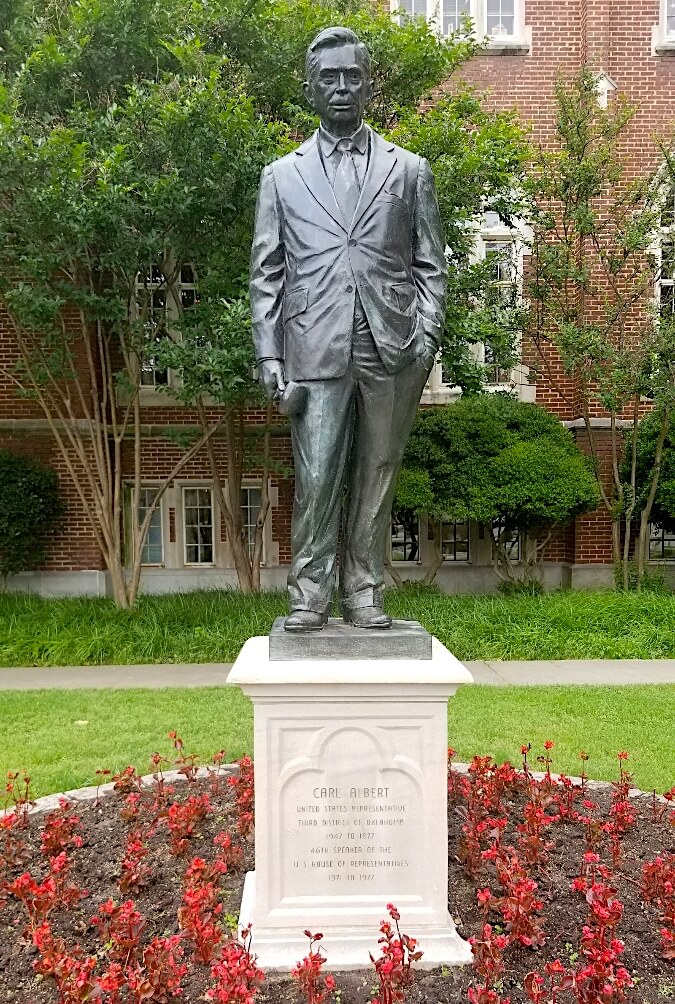
Carl Albert was pleasant, humble and intelligent, according to Joe Foote, who served as his press secretary from 1972 to 1976.
Albert has schools, health care facilities and buildings named after him.
“He was the highest-serving official in the state of Oklahoma at the national level,” Foote said.
Albert’s career as a U.S. representative took place during a relatively tumultuous time politically, with the Watergate scandal and Richard Nixon’s resignation taking center stage. In the video embedded below, Albert lists supporting legislation on education and civil rights as his greatest accomplishments.
As Speaker of the House, Albert was second in line for presidential succession. However, twice he had to prepare to be the acting president — first when Vice President Spiro Agnew resigned and again during Nixon’s impeachment process.
“He is not the first Speaker (of the House) to be next in line to the presidency, but he’s the only one to be there twice,” said Keith Gaddie, an OU political science and journalism professor. “This is where Albert takes on historical significance.”
Albert managed to work with both parties even in divisive times like Watergate. He was known for “working across the aisle, figuring out ways to compromise and get key legislation moving, and to keep relationships positive and friendships alive in both parties,” Foote said. “When you look back on his career in history, he becomes an extraordinary leader because he did have that capacity to transcend partisanship.”
Ron Peters, a regents professor at OU, served as the founding director of the center after fighting for its federal funding in D.C.
“Ron is responsible for the creation of the Carl Albert Center,” Foote said. “He got the idea that there should be an institution at OU named for Carl Albert, and it should be a center that would serve as archives for papers of congressman and senators and be an academic center for PhD students wishing to study American politics with a particular interest in the U.S. Congress.”
‘We want to have informed citizens’
The Carl Albert Center also has a civic engagement program that focuses on registering students to vote. Because of this, OU has won competitions against other universities for registering the most students across campus.
The center is focused on getting students involved with politics and with their communities through networking and research, giving them the chance to form skills they need to continue in their field.
Crespin, who is also a political science professor, teaches classes about service learning and internships. These classes allow students to work with members of the Oklahoma Legislature, as well as lobbyists.
“If you look at our motto, we want to have informed citizens,” Crespin said. “So this is one way to do it — by teaching students, you know, ‘Here are the things you need to know to go on to have this career.’”
(Clarification: This story was updated at 9:26 a.m. Wednesday, May 29, to reference Carl Albert as a Rhodes Scholar properly.)










